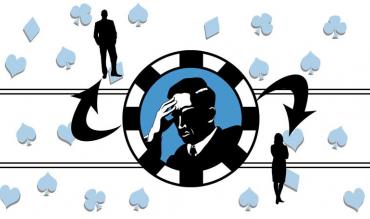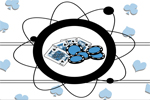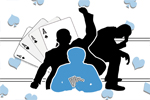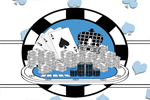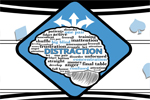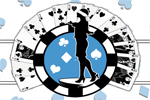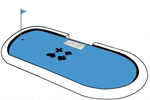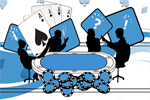Addicted to Soul Reads

When you look around social media, the poker hands poker players tend to share the most are the ones that players call a “soul read.” These are the epic lay downs or hero calls that we attribute to some sort of sixth sense, rather than a logically deduced decision. Nine high like a boss, calling a river shove with king high or the big fold in Rounders. These are hands which make your opponent and everyone else say, “how did you know that?”
These hands are popular and deeply embedded into the poker psyche. They are particularly alluring when we watch TV and know something the player doesn’t—will they be able to figure it out? The high of making a soul read can be addictive and more of a reward than the pot you win. Many famous players are best known for the best (or worst) hands they played on TV rather than their track record. Every fan remembers when Chris Moneymaker bluffed Sam Farha, Phil Ivey’s reraising war with Paul Jackson, Jason Mercier’s epic call in the EPT and the numeroustimes Daniel Negreanu put someone on their exact hand.
Tempted by Soul Reads
These epic hands entertain us, and new poker playersare often highly motivated to learn how to pull off a soul read of their own.But as exciting as it is to successfully pull off your first soul read, a problem may have been created. I’vetalked withmany players who became addicted to making soul read type plays, and try them so often they turn into a costly problem. Many expertsbelieve one of the reason for Phil Hellmuth’s success is precisely because of the extraordinary lengths amateur players will go to try and own him. The few times it works they make his highlight reel of blowups, and the next thousand playershave been encouraged to try and do the same against him.
Due to the variance and incomplete information in poker, it is easy to convince yourself that a bad decision was a profitable play. In that respect, an ill-timed soul read is no different than playing a hand because it’s lucky or playing above your bankroll because you know you’ll win. Here are some of the ways poker players rationalize making high variance bluffs or hero calls:
Reasons Players Bluff

- It’s good for their table image to come across as a nit or a maniac
- Purposely structuring their bluffs to be pot committed if re raised
- Gambling will loosen up the table
- They have “tilt equity” because their opponent will go nuts when they win the hand
- Wanting to get revenge on someone
- The information gained from calling is worth potentially losing money in the short term
- A bad bluff can be exploited by changing their bluffing range afterwards
- They want to look good in front of other people
- Calling keeps their opponents honest so they won’t bluff them again
What’s Driving Your Soul Reads?
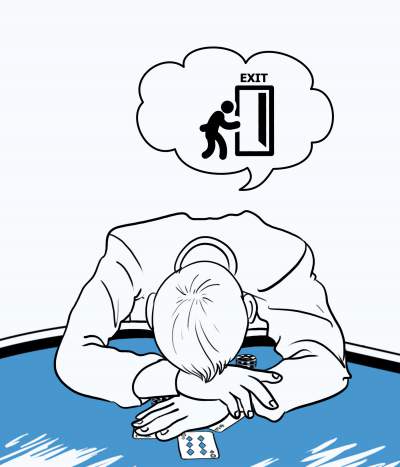
To be fair, these points can all be solid reasons to make a play. They’re not always an excuse for making a bad decision. But, it’s important that you know whether you’re making a well-timed soul read that’s profitable long term, or mistake. Even profitable players, who consistently make solid soul reads, get it wrong from time to time.
Whether this is a problem that happens often or infrequently, the first step to correcting it is the same. Study the instances when you make the wrong play and force a poorly-timed soul read. Does it happen when you’re tired, tilted or bored? What factors do you fail to consider or analyze properly? Is it more likely to happen when you’re winning or losing money? Create a clear description of the situations where you’re likely to force a soul read, the reasoning you’ll use to justify it, and how your decision making breaks down. Study them all regularly. This will train your mind to spot the situations when an ill-timed soul read is likely to occur so you can avoid making a mistake.
If this strategy works for you, there isn’t a deeper problem. But that’s not true for everyone. Regardless of how good you are as a player, if there are times when you can’t help yourself and become compelled to pull off a soul read, you are likely chasing the high that comes from pulling one off. Winning money and making the best decision is no longer your main goal. The soul read is the win you’re after. Even if it costs you a lot of money to get one.
Chasing the Poker High
Breaking this cycle can be difficult because these plays appeal on such a visceral level—it’s one reason you love the game. Players are often convinced they can simply stop themselves from attempting a soul read type play by saying, “don’t do it.”The problem with this solution is it doesn’t get to the heart of why they want to attempt one in the first place. Instead, it creates hidden tension that can eventually blow-up. Tension is created every time they successfully force themselves not to make the play they really want to make, especially when folding. The tension is a result of not getting the high they crave. It’s like a form of withdrawal that will eventually become so intense that logical decision making will disappear and they become fixated on finding soul reads to make.
To truly solve this problem, you need to get at the heart of why you’re chasing the high. Does a hero call make you feel like an elite player? Does it make you feel better than your opponent? Does it validate your decision to devote a lot of time to poker games? Do you think it’s important that the other players at the table recognize your skill? Do you desperately want to avoid feeling owned, like when another player shows you a bluff or when your bluff gets snap called? Think about these questions before you play next, and then again after the next time you feel the urge to pull off a big play.
Flawed Logic: Check Yourself Before You Wreck Yourself
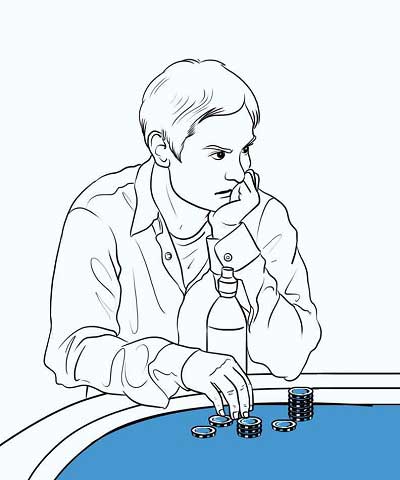
The players that I’ve coached with this problem tend to have an underlying weakness in their confidence. The size of the weakness varied—some were small and related just to poker, while others tended to be deeper, more personal, and began before they started playing poker. Either way, these playerschasedthe high from a soul read as a subconscious attempt to correct the weakness in their confidence. Pulling it off made them feel like they had made it, like they were the best player at the table, or that they couldn’t lose. Play close attention to how it makes you feel, because there’s a flaw in it. Once you figure out the flaw, you can correct the weakness in your confidence and your addiction to soul reads.
Jared Tendler, MS, LMHC is licensed therapist specializing in sport psychology and is the leading authority on the mental game in poker. Throughout his nearly 10 years coaching poker players he has worked with over 500 players hailing from over 45 countries, including many of the top players in the world. He is also the author of two best-selling books on the subject, The Mental Game of Poker 1 and Poker 2.
 |
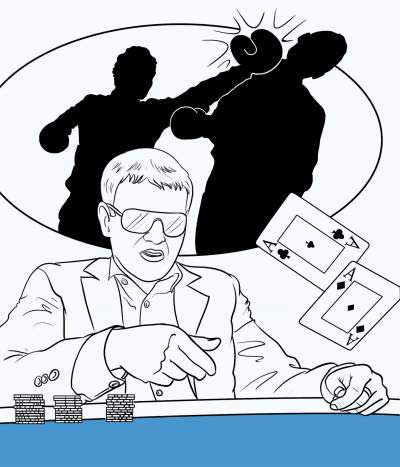 |
